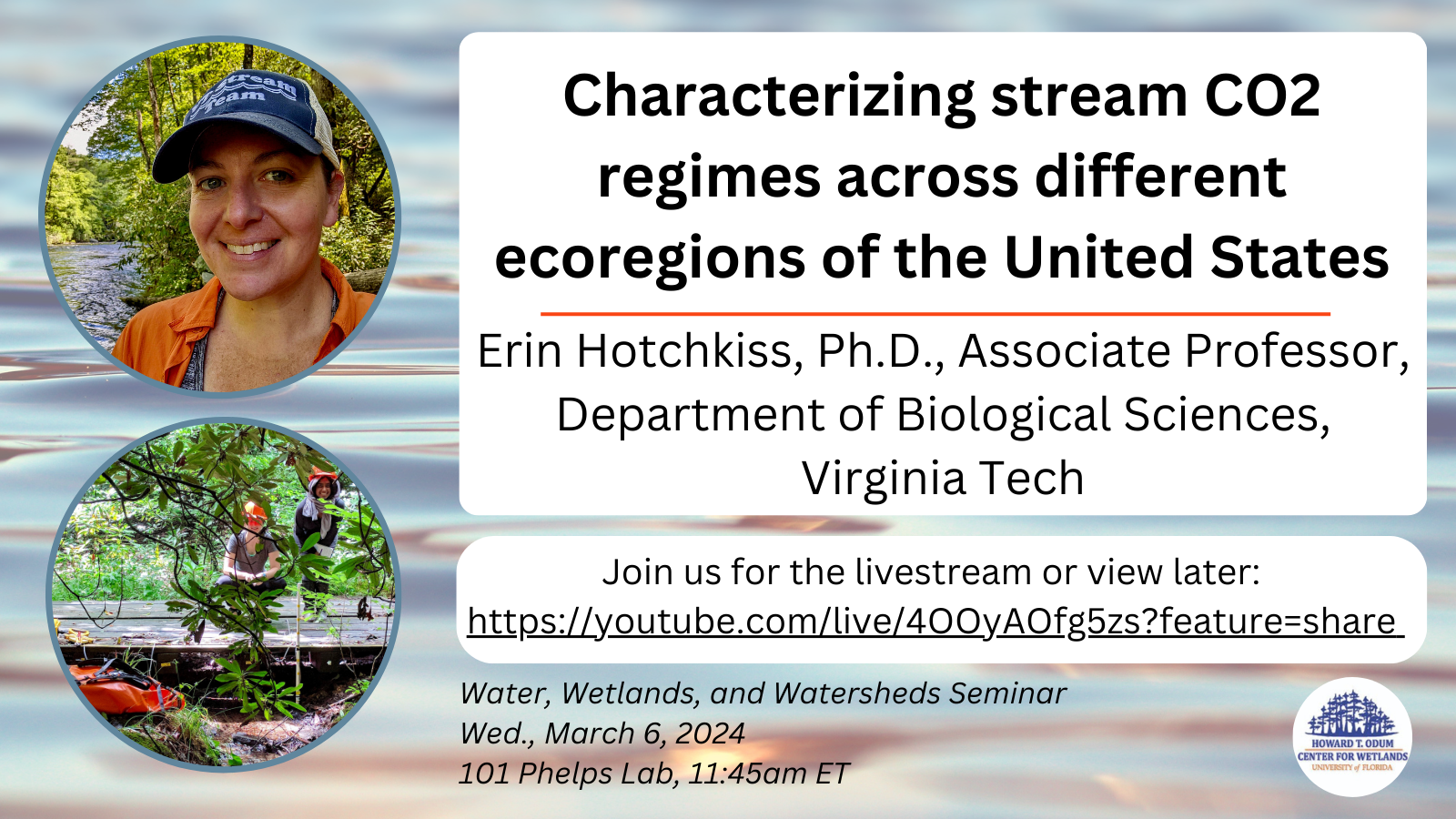
Erin Hotchkiss, Associate Professor, Department of Biological Sciences, Virginia Tech
Join us for the livestream March 6th, 11:45am ET:
(Please visit our YouTube channel main page for the stream if there are any issues with the direct link.)
Abstract
How carbon moves and cycles within and across ecosystems sets the stage for biogeochemical cycles and ecological interactions. For example, carbon export from soils to streams alters the degree to which terrestrial ecosystems are net carbon sinks and subsidizes respiration and food web energetics in recipient freshwaters. Although the inclusion of streams in regional and global carbon budgets has increased over the last decade, the sources and mechanisms contributing to stream CO2 emissions have not been well-quantified, especially during high flow events and across different seasons. We are integrating high-frequency sensor estimates of stream pCO2 with ongoing monitoring of five stream reaches, adjacent groundwater wells, and nearby terrestrial plots at National Ecological Observatory Network (NEON) sites to ask: What are the patterns of stream CO2 at different timescales? What are the mechanisms and conditions that control stream CO2 fluxes and fate within and across biomes? Our five sites are characteristic of the Boreal, Pacific Northwest, southern Rocky Mountains, Appalachian Mountains, and Continental Prairie ecoclimatic regions of the United States. I will share results from ongoing research to characterize CO2 regimes in five ecoregions of the United States, and place this work in broader context through several case studies that highlight opportunities to better integrate non-perennial streams, riparian wetlands, and streams draining developed landscapes into our understanding of stream CO2 regimes and landscape carbon budgets.
Bio
Dr. Erin R. Hotchkiss is an Associate Professor in the Department of Biological Sciences and a Faculty Affiliate of the Global Change Center at Virginia Tech. She received her Ph.D. in Ecology from the University of Wyoming in 2013, where she was advised by Dr. Robert O. Hall, Jr. Hotchkiss also completed a M.Sc. at the University of Wyoming and received her B.Sc. from Emory University. Prior to joining Virginia Tech, she worked as a postdoctoral fellow at Umeå University, Sweden and Université du Québec à Montréal in Canada. Hotchkiss was the 2016 recipient of the Society for Freshwater Science’s (SFS) Hynes Award for New Investigators as well as the Association for the Sciences of Limnology and Oceanography’s (ASLO) Raymond L. Lindeman Award. She is currently Vice President of SFS and became an ASLO Fellow in 2023. Ongoing research in the Hotchkiss Lab (www.hotchkisslab.com) is exploring how environmental change, land-water interactions, & ecosystem processes shape the transport, transformation, and fate of carbon, nutrients, and pollutants in freshwaters.
Postcard
